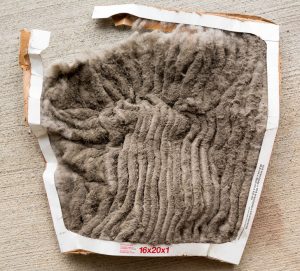
Most households rely heavily on their air conditioner for thermal comfort when the temperatures start rising outside in spring and even more so in summer, which also means that any fault that leads to diminished capacity in the unit’s performance is felt sensitively. Decreased performance can be caused by many issues – here are some that might make AC unit refuse to cool your home.
An Incorrect Thermostat Setting
If you notice that your home is not as cool as you want it to be, the first thing to check is your thermostat. Check whether it is set to cooling mode, then check the temperature setting, too. If the setting is right, you can try to kick the system back to life by turning off the thermostat, then turning it on again in a few seconds, checking the mode and the temperature setting again. If you feel cold air coming from the unit’s register within a couple of minutes, the problem has been solved – if the unit still delivers warm air, however, the best way to remedy the problem is to call a Aurora furnace repair technician.
Dirty Filters
Another common and easy to remedy issue that leads to inefficient cooling is clogging or dirt in the filters. The role of the filter is to capture any dust, dirt and other contaminants when they enter the handler unit – when they become clogged, the problem compromises the amount of cool air blown into your rooms as well as the quality of the air. Fortunately, the replacement is simple – just follow the steps in the manual of your furnace.
A Blocked Condenser Unit
Most air conditioners include an outdoor condenser unit with a large coil that contains lots of small metal fins that is wrapped around the core. If your air conditioner is working, but not cooling properly, the cause might be a blockage in the coil that has probably appeared because the condenser coil has drawn in some sort of dirt, such as leaves, dirt or grass. The coil can be cleaned with a brush and vacuum cleaner, but it might be a better idea to leave the operation to professionals.
A Fault of the Heat Pump
Some types of air conditioners have a heat pump for the exterior unit. The heat pump fulfills the same role as the condenser unit and it can be affected the same way, being damaged by the dirt and vegetation particles that enter it. If you have checked the previous faults and you suspect that your air conditioner is still malfunctioning, the best way to proceed is to turn to an HVAC Aurora furnace repair technician as heat pump repair requires specialized knowledge and tools.
Improper Sizing
One of the most common problems that leads to inappropriate cooling is incorrect sizing – an air conditioner that is not suitable for the size of your room is unable to deliver cool air in sufficient amounts. If this is what causes the thermal discomfort in your home, the only way to remedy the issue is to replace the entire air conditioning system.

